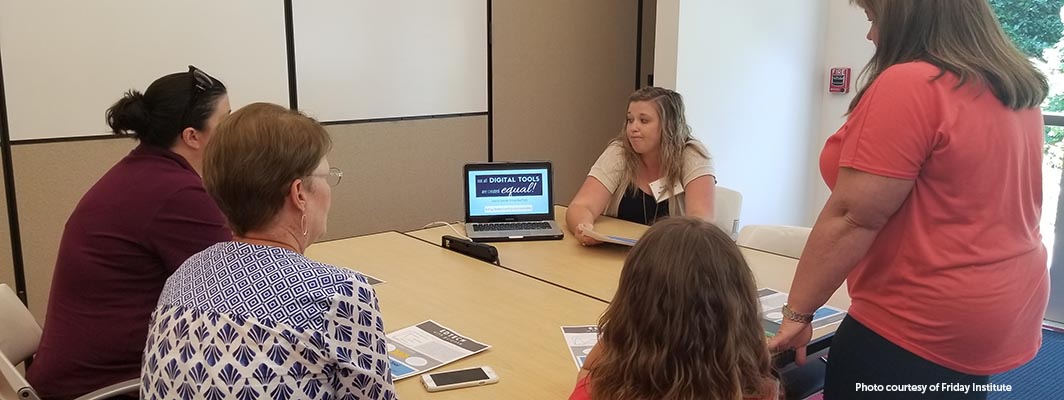
When I embarked on the journey of reviewing micro-credentials for the Friday Institute for Educational Innovation, I was excited and honored to be a part of what I believe is an incredible initiative to provide educators more personalized professional learning. Micro-credentials provide educators with competency-based recognition for the skills they develop throughout their careers. Little did I know reviewing micro-credentials would have a tremendous impact on my professional growth as well. Evaluating the artifacts that teachers submit has had an invaluable impact on my ability to provide and craft feedback to teachers. Just like learners in the classroom, the submissions we receive are wide-ranging, providing the opportunity to virtually coach educators toward a deeper understanding of the intended objective.
The challenge is crafting the feedback so the educator understands our suggestions for improvement and feels guided toward competency if they resubmit. This is not always a simple task. When writing feedback I try to follow the advice of Grant Wiggins in his article, “Seven Keys to Effective Feedback”. It is vital that feedback is goal-referenced, tangible, transparent, actionable, and user-friendly.
For example, our Build a Student-centered Plan to Support Learning Difference micro-credential focuses on involving the student in the planning, data collection, and goal setting process. As educators, we often rely on our own knowledge of best practices and intervention strategies for students and build a plan for them, rather than with them. This micro-credential helps educators tap into the potential of involving the student in the process.
In the first part of this micro-credential, the educator describes the selected student holistically, shares specific learning differences that may need to be addressed, and provides a rationale for why the student needs a student-centered plan. This is the feedback I provided to an educator whose original submission missed the mark:
Thank you for the description of your chosen student. You have described the student holistically and provided a rationale for why the student needs support. Please consider and share specific learning differences that may be attributing to your student’s concerns. You mention problems at home, but how are those presenting at school? Lack of motivation? Difficulty retaining information (working memory)?
In another component of this micro-credential, the educator collects data to support the identified areas of need and involves the student in the data collection process. My feedback to another educator’s submission:
Please submit at least three sources of data (not to include your student centered plan–this serves as the artifact for the next requirement). I encourage you to consider collecting data that will specifically highlight or help to determine the student’s particular learning differences. This could look like something as simple as a daily reflection sheet where the student indicates whether his home experiences were positive or negative that morning and how it affected his motivation to learn at school that day. This kind of data would give clearer insight into what is causing a barrier to his learning, involves student input, and could be used to drive the strategies in the student centered plan.
In both cases I relate my feedback specifically to the provided rubric (goal-referenced), provide transparent and tangible information about how they had not yet demonstrated competence, give examples to make it user-friendly, and also point out the strengths of the initial submission.
As an aspiring administrator, this skill is so valuable! One of my biggest motivators for choosing to pursue school leadership is the opportunity to help teachers grow and have a larger impact on students. I never imagined that assessing micro-credentials would also enable me to both support teacher growth and improve my own professional competence. I’m so thankful to work with an incredible team of reviewers who support me in my own learning process.